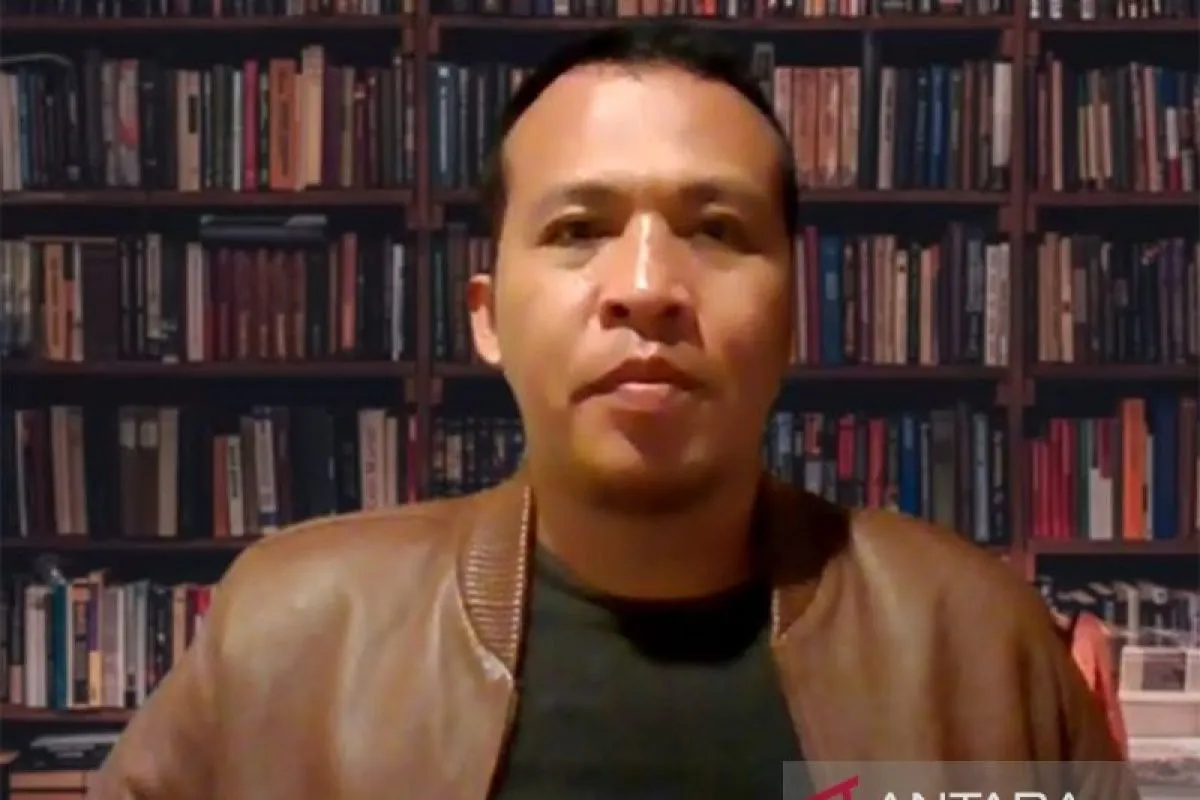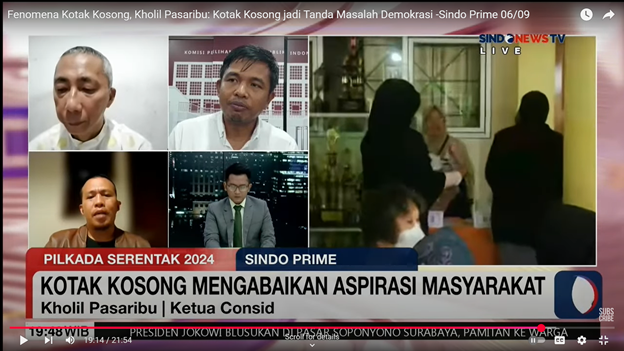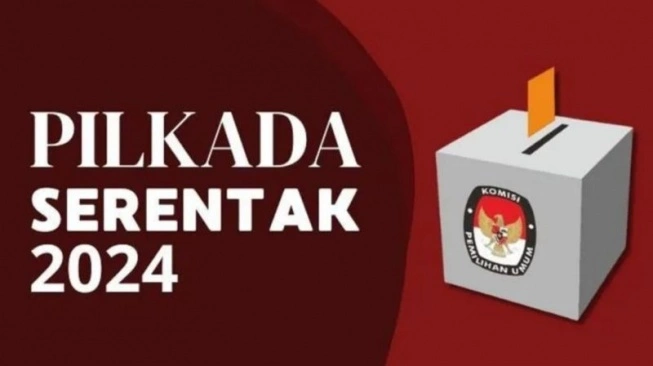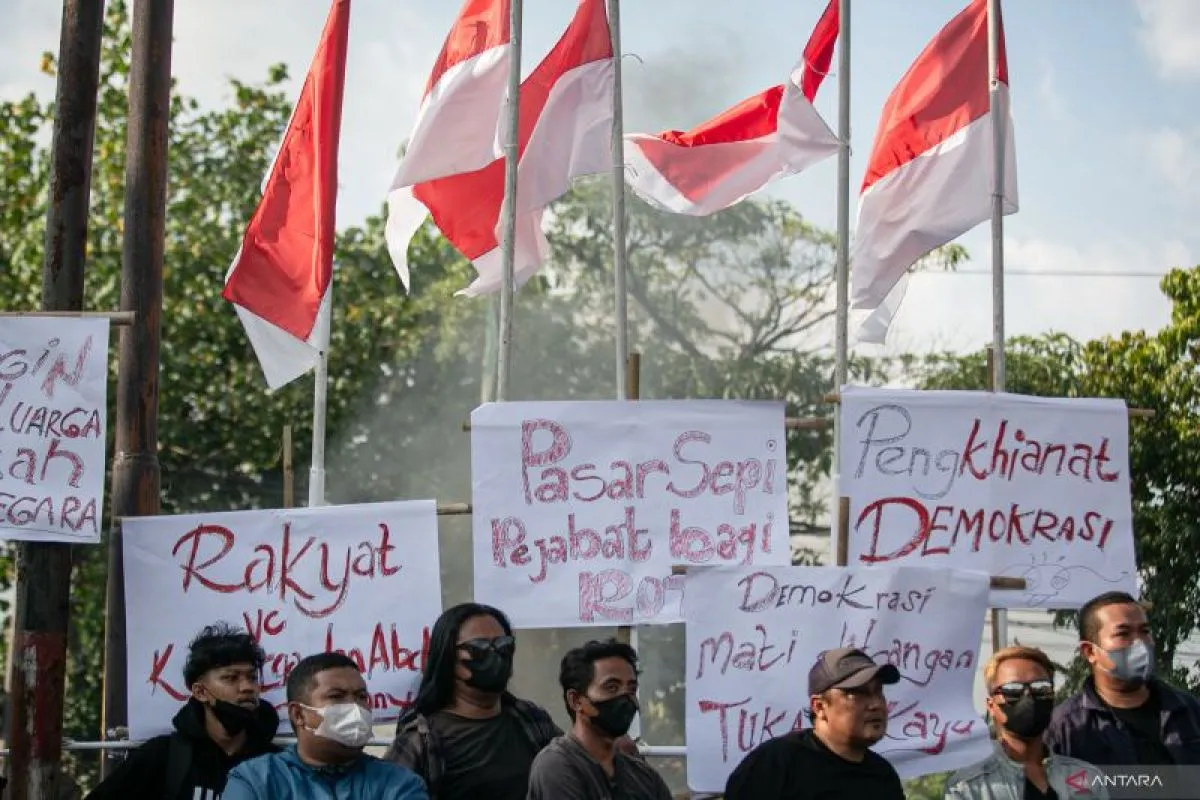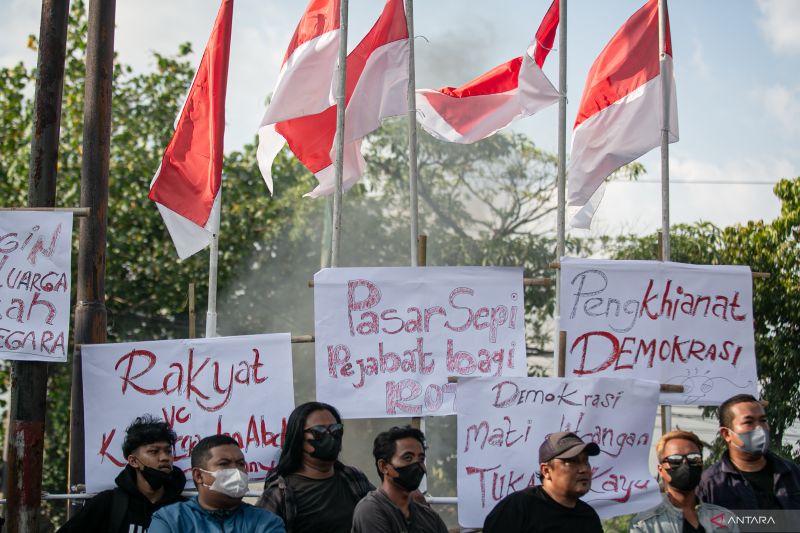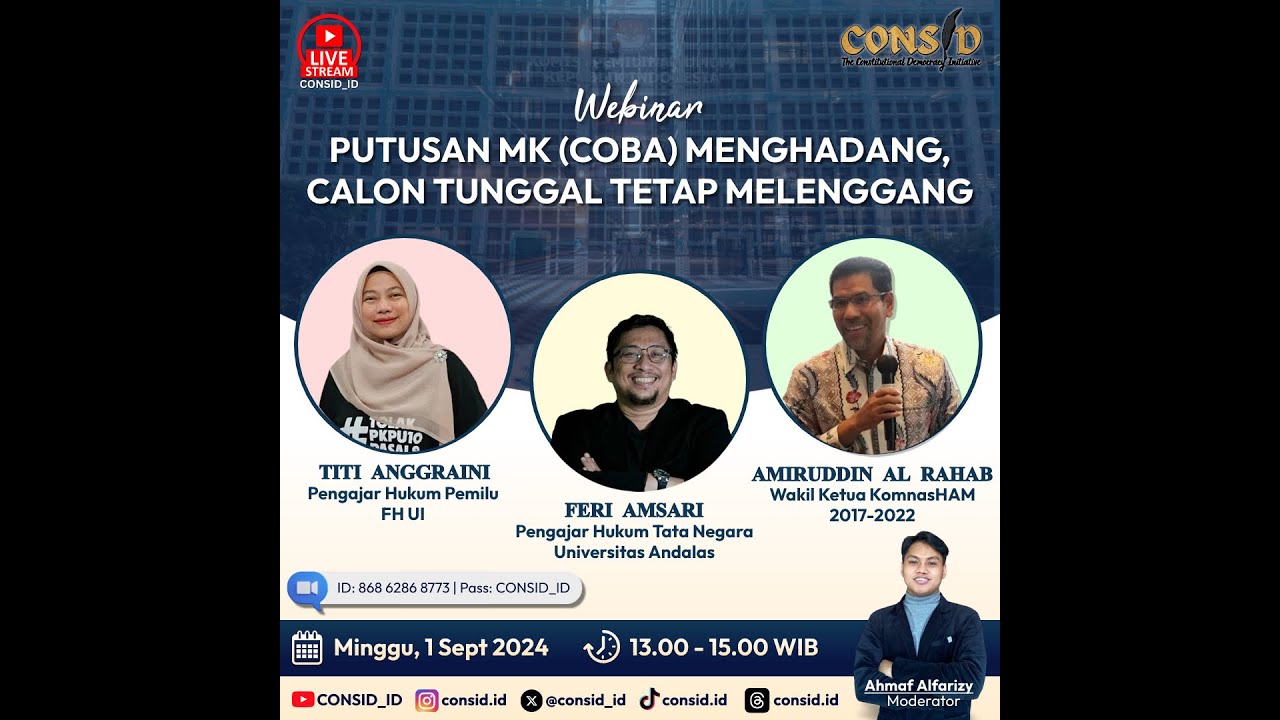
The Constitutional Court of the Republic of Indonesia, through Decision No. 60/PUU-XXII/2024, declared that Article 40(1) of Law No. 10/2016 on Local Elections is unconstitutional and no longer legally binding, insofar as it is not interpreted in the manner provided by the Court. This article had previously required political parties or coalitions to secure at least 20% of local legislative seats or 25% of the total valid votes from the most recent legislative election in the relevant region in order to nominate a pair of local head candidates.
Through this Constitutional Court decision, the Court has provided a new interpretation of Article 40(1), stipulating that political parties or coalitions participating in the election may nominate candidates if they meet the following vote-share requirements based on population thresholds drawn from the Final Voter List (DPT). For gubernatorial elections: a) In provinces with up to 2,000,000 registered voters, the party or coalition must secure at least 10% of valid votes in that province; b) In provinces with between 6,000,000 and 12,000,000 voters, the threshold is 7.5% of valid votes; c) In provinces with more than 12,000,000 voters, the threshold is 6.5% of valid votes.
For mayoral and regency elections: a) In districts with up to 250,000 voters, parties or coalitions must gain at least 10% of valid votes; b) In districts with between 250,000 and 500,000 voters, the threshold is 8.5% of valid votes.
This Constitutional Court decision fundamentally alters the basis for candidate nomination by political parties or coalitions—from parliamentary seats or total vote share, to solely the percentage of valid votes, adjusted to the size of the constituency. In its legal reasoning, the Court emphasised the importance of fairness and equality with the nomination requirements for independent (non-party) candidates. While independent candidates are assessed based on the number of registered voters, political parties must now meet the valid vote-share threshold according to DPT figures in each region.
As this Constitutional Court decision is final, binding, and effective immediately upon issuance, political parties are now legally entitled to nominate candidates without being constrained by external political interests.
This decision deserves to be welcomed, and the Constitutional Court commended—particularly as it arrives amidst deepening cartel politics in the process of local candidate nominations. For a public increasingly disillusioned with the conduct of political elites and losing faith in democratisation, this development offers a breath of fresh air. It provides hope that democracy can still be meaningfully upheld in the upcoming local elections.
In recent years, public voices have been sidelined by party elites who have hijacked democratic procedures to serve narrow political interests. This Constitutional Court decision should be seen as a bold corrective to the arrogance of party elites and their cartels, who have shown little concern or responsibility for maintaining a healthy democratic order in Indonesia.
It is therefore hoped that this decision will encourage political elites to return to their foundational mission, to act with political sovereignty grounded in the will of the people. The longstanding practice of political horse-trading in local nominations must end. Political parties and coalitions now enjoy the legal freedom to nominate their best cadres without being bound by burdensome thresholds.
Jakarta, August 20th 2024
Kholil Pasaribu
Chairperson, CONSID





